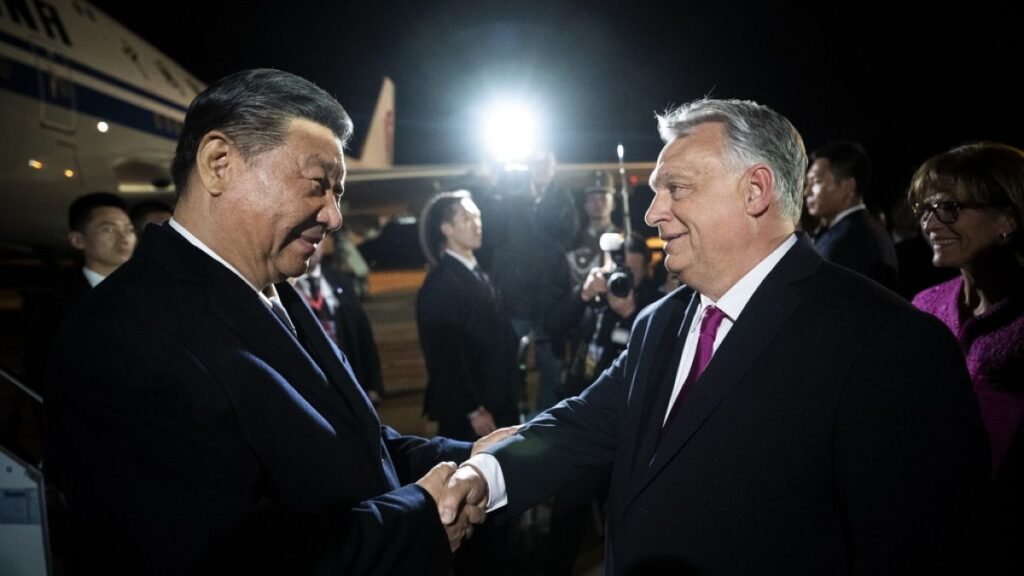Chinese President Xi Jinping’s visit to Hungary is expected to solidify agreements with Prime Minister Viktor Orbán, further strengthening China’s economic presence in the region. While other EU nations are seeking to reduce their reliance on China, Orbán has actively pursued economic ties with Beijing, even positioning Hungary as the first country in the EU bloc to engage in Xi’s Belt and Road Initiative. Despite mainstream European leaders’ protective measures against China, Budapest’s diplomatic and trade relations with autocratic governments outside the EU and NATO highlight its balancing act between regional alliances and economic partnerships.
During Xi’s visit to Budapest, Hungarian Foreign Minister Péter Szijjártó announced plans to sign at least 16 bilateral agreements, emphasizing the historic significance of Xi’s inaugural visit to Hungary as president. These agreements may involve Belt and Road expansion, potentially including infrastructure and energy investments. China was Hungary’s biggest foreign investor in 2023, further solidifying the economic ties between the two countries. Xi’s visit follows his recent trip to Belgrade, where he concluded an agreement with Serbia, another country perceived as friendly to Russia.
While China claims neutrality in the Ukraine conflict, it has faced criticism for allegedly enhancing Russia’s military capabilities and refraining from labelling Russia’s actions as an invasion. Hungary, on the other hand, has condemned the invasion but has resisted EU sanctions against Moscow and abstained from providing military support to Kyiv. Xi and Orbán are expected to discuss the Ukraine crisis during their meeting, given Hungary’s proximity to the conflict zone. Hungary has urged China to take a leading role in facilitating peace talks between Russia and Ukraine, endorsing a peace plan proposed by China.
Xi’s visit to Hungary comes at a time when Chinese economic influence in the region is growing, despite the concerns of other EU nations about overreliance on China. In addition to trade and investment agreements, China has offered cooperation on public security and law enforcement to Hungary, highlighting the multifaceted nature of the economic partnership between the two countries. Orbán’s nationalist-populist politics have positioned Hungary as a willing participant in China’s Belt and Road Initiative, further solidifying economic ties between the two nations.
While mainstream European leaders have taken protective measures against China, Budapest’s active pursuit of economic ties with Beijing underscores its willingness to balance regional alliances with economic partnerships. Xi’s visit to Hungary is expected to deepen economic cooperation between the two countries and potentially expand China’s Belt and Road Initiative into Hungary. The discussions between Xi and Orbán are likely to address not only economic cooperation but also the Ukraine crisis, given Hungary’s proximity to the conflict zone. Hungary’s endorsement of China’s peace plan for Ukraine highlights its efforts to play a diplomatic role in the resolution of the conflict.











